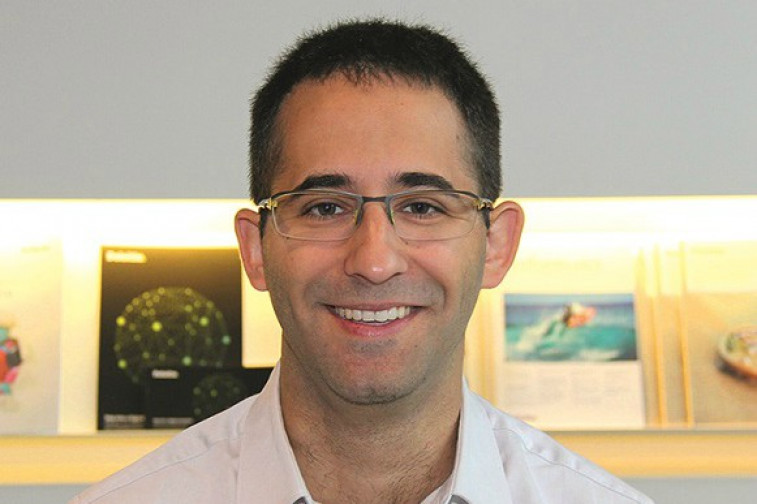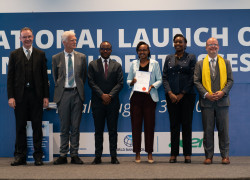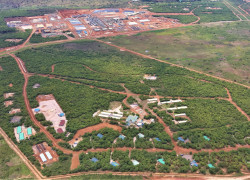Deloitte Global releases TMT predictions 2021
Growth in digital reality, virtual doctor visits, and cloud are likely to intensify.
Deloitte Global released its global Technology, Media & Telecommunications (TMT) Predictions report, presented in Luxembourg at the annual TMT Conference on Tuesday 26 January 2021. This year’s edition highlights how worldwide trends in TMT may affect businesses and consumers worldwide. In addition, the report shows how many of these trends are being driven by the global pandemic’s economic and societal impacts, resulting in intensifying growth in video, virtual and cloud technologies, as well as in media segments such as sports.
Doctor visits move to video
One effect of COVID-19 has been jumpstarting a worldwide trend of telemedicine, including video-based doctor visits. The global pandemic has not only necessitated the elimination of regulatory barriers to such visits but also helped consumers better understand and leverage video calling apps, especially consumers over the age of 65.
Despite some initial trepidation, the TMT Predictions report illustrates how many consumers (and doctors) have been willing to shift to virtual appointments, including video visits. In Luxembourg, a total of 4 million annual doctor's visits were registered in 2019. Deloitte Global predicts that globally the percentage of virtual video visits to doctors will rise to 5% in 2021, up from an estimated 1% in 2019. Even single-digit growth is significant; 8.5 billion doctor’s visits, worth a total of approximately US$500 billion, took place in the 36 OECD countries in 2019 alone.
“We expect to see a similar increase in Luxembourg as the pandemic has affected all countries worldwide. The offer and the demand for online consultations are evolving hand in hand, and are easier to carry out than ever before. The technological opportunity has always been there; the pandemic has just accelerated the change in our behavior,” explains David Osville, TMT Leader at Deloitte Luxembourg.
Education and the enterprise opt for virtual reality
The market for digital reality headgear is growing as immersive technologies gain popularity in the enterprise and for education. Deloitte Global predicts that, led by purchases by corporations and educational institutions, sales for enterprise and educational use of wearable headsets for virtual, augmented and mixed reality—collectively known as XR or digital reality—will grow by 100% in 2021 over 2019 levels.
Market growth for these types of headsets has already accelerated in some markets due to the risk of COVID-19 infection driving their use in teaching employees and students virtually rather than in person.
The pandemic drives cloud growth
By some metrics, the cloud market grew even faster in 2020 than in 2019. According to the TMT Predictions report, this was driven by increased demand due to COVID-19, lockdowns, and the work-from-anywhere business environment. Deloitte Global predicts that revenue growth will remain greater than 30% for 2021 through 2025 as companies migrate to the cloud to save money, become more agile, and drive innovation.
Unleashing Industry 4.0 with the intelligent edge
The intelligent edge—the combination of advanced wireless connectivity, compact processing power, and artificial intelligence (AI) located near devices that use and generate data—is already animating some of the largest technology and communications companies on the planet. Deloitte Global predicts that in 2021, the global market for the intelligent edge will reach US$12 billion, continuing a compound annual growth rate (CAGR) of around 35%. That increase is being driven primarily by telecommunications companies and their expanding 5G networks, along with hyperscale cloud providers. These highly capitalized leaders’ trailblazing may make it easier for companies across multiple industries to attain the intelligent edge.
The 5G health myth
Deloitte Global predicts that in 2021, it is very unlikely that the radiation from 5G mobile networks and 5G phones will affect the health of any single individual. But if education about 5G is to be effective in curbing popular fears, it needs to be compelling, consistent and pervasive, and it needs to begin now.
“As 5G becomes more widespread, alarm bells have sounded around 5G’s supposed health hazards, not only at state level but also by health advocates. In the midst of the pandemic, these concerns need to be addressed as a subject of crucial importance,” adds David Osville.
For more information and deeper insight on the TMT Predictions of 2021 visit our dedicated webpage at: https://www2.deloitte.com/lu/tmt-predictions
Communiqués liés
RSA launches technology and management liability insurance s...
RSA Luxembourg, part of Intact Insurance Specialty Solutions, today announces th...
Lancement d'une nouvelle connexion intermodale entre Bettemb...
CFL multimodal a le plaisir d'annoncer le lancement de sa nouvelle connexion i...
Experts from LUNEX award first micro-credentials in Rwanda o...
The Rwanda Ministry of Education (MINEDUC) formally inaugurated Syllabi, a publi...
ERG Notes that ENRC Secures Landmark Victory as Court of App...
Eurasian Resources Group (ERG), a leading diversified natural resources group he...
LetzToken et La Vie est Belle annoncent leur partenariat ouv...
«?LetzToken?», plateforme de tokenisation pionnière basée à Luxembourg, et ...
ERG announces a Pre-Export Finance Facility Agreement based ...
Eurasian Resources Group (“ERG”, “The Group”), a leading diversified nat...
Il n'y a aucun résultat pour votre recherche







